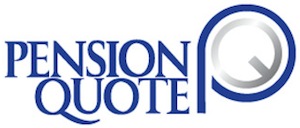Being self-employed comes with numerous advantages: flexibility, independence, and the potential for greater income. However, it also means taking full responsibility for your taxes. Without an employer to withhold taxes from your paycheck, you’re on the hook for the entire tax bill—both the employer and employee portions of self-employment taxes, plus income tax.
The good news? Self-employment opens up a world of potential tax deductions that can significantly reduce your taxable income. Strategic business expense optimization isn’t just about saving money—it’s about reinvesting in your business growth while maintaining compliance with tax regulations.
Understanding the Fundamentals of Deductible Business Expenses
Before diving into specific strategies, it’s crucial to understand the IRS’s basic criteria for deductible business expenses. For an expense to qualify:
- It must be ordinary and necessary for your industry
- It must be directly related to your business
- It must be reasonable in amount
The key is maintaining a clear separation between personal and business expenses. This separation becomes the foundation upon which all your tax-saving strategies will build.
Home Office Deduction: Often Overlooked, Highly Valuable
If you conduct business from home, the home office deduction can be substantial. There are two methods for calculating this deduction:
Simplified Method: Deduct $5 per square foot of your home used exclusively for business (maximum 300 square feet, or $1,500).
Regular Method: Calculate the percentage of your home dedicated to business use, then apply that percentage to relevant home expenses (mortgage interest or rent, utilities, insurance, repairs, etc.).
The regular method typically yields a larger deduction but requires more detailed record-keeping. To qualify, your home office must be:
- Used exclusively and regularly for business
- Your principal place of business OR
- A place where you regularly meet clients/customers
Vehicle Expenses: Choose Your Method Wisely
For many self-employed individuals, vehicle expenses represent one of the largest potential deductions. You have two options:
Standard Mileage Rate: For 2025, deduct 67 cents per business mile driven.
Actual Expense Method: Track all vehicle-related costs (gas, maintenance, insurance, depreciation) and deduct the business-use percentage.
For high-mileage drivers with fuel-efficient vehicles, the standard mileage rate often yields better results. However, if you drive a newer, more expensive vehicle with higher operating costs, the actual expense method might be more advantageous.
Remember: Commuting between your home and a regular workplace is not deductible, but travel between business locations is.
Health Insurance and Retirement Planning: Double Benefits
Self-employed health insurance premiums and retirement contributions offer dual advantages—reducing your taxable income while building your personal safety net.
Health Insurance Premiums: Self-employed individuals can deduct 100% of health, dental, and long-term care insurance premiums for themselves, their spouse, and dependents. This adjustment to income doesn’t require itemizing deductions.
Retirement Plans: Several options exist for self-employed retirement savings:
- Solo 401(k): Contribute up to $22,500 ($30,000 if over 50) as an employee, plus approximately 20% of net self-employment income as an employer in 2025
- SEP IRA: Contribute up to 25% of net self-employment income (maximum $69,000) in 2025
- SIMPLE IRA: Contribute up to $16,000 ($19,000 if over 50) in 2025
These contributions reduce your taxable income while building your retirement nest egg—a win-win situation.
Technology and Equipment: Strategic Timing and Section 179
When purchasing business equipment, strategic timing and understanding IRS provisions can maximize your tax benefits:
Section 179 Deduction: Allows immediate expensing of qualifying equipment up to $1,180,000 in 2025, rather than depreciating over several years.
Bonus Depreciation: Permits first-year deduction of 20% of the cost of qualified business property in 2025.
Regular Depreciation: Spreads the deduction over the asset’s useful life.
Consider the timing of your purchases. If you’re having a particularly profitable year, accelerating planned equipment purchases into the current tax year could significantly reduce your tax burden.
Professional Development and Education
Investments in your professional growth are generally deductible when they maintain or improve skills needed in your current business:
- Professional courses and certifications
- Business books, publications, and research materials
- Industry conferences and seminars
- Professional coaching
However, education that qualifies you for a new profession isn’t deductible as a business expense.
Record-Keeping: The Foundation of Successful Tax Planning
Even the most advantageous deductions are worthless without proper documentation. Implement these best practices:
- Separate business and personal accounts completely
- Use accounting software specifically designed for self-employed professionals
- Digitize receipts and link them to transactions
- Track expenses in real-time rather than scrambling at tax time
- Document business purpose for each expense
The time invested in organized record-keeping pays dividends when filing taxes or in case of an audit.
Working with Tax Professionals: An Investment, Not an Expense
While DIY tax preparation software has improved dramatically, self-employed individuals with complex situations often benefit from professional assistance. A qualified tax professional doesn’t just prepare your return—they provide year-round strategic planning to ensure you:
- Take advantage of all available deductions
- Remain compliant with changing tax laws
- Make informed business decisions with tax implications in mind
- Implement proactive strategies to minimize future tax liabilities
The cost of professional tax assistance is itself a deductible business expense.
Quarterly Estimated Payments: Avoiding Penalties
Self-employed individuals must manage their tax obligations throughout the year through quarterly estimated tax payments. Underpayment can result in penalties.
A good rule of thumb is to set aside 25-30% of your income for taxes, adjusting based on your specific situation. Making these payments on time helps avoid underpayment penalties while creating a disciplined approach to cash flow management.
Conclusion: A Strategic Approach to Business Expense Optimization
Effective business expense optimization isn’t about aggressive tax avoidance or creative accounting. It’s about thoughtfully structuring your business operations to take legitimate advantage of provisions designed to support small business owners.
The most successful self-employed professionals view tax planning as an ongoing process, not a once-a-year scramble. By implementing the strategies outlined above, you can significantly reduce your tax burden while reinvesting in your business growth and personal financial security.
Remember, tax laws change regularly. Stay informed through reliable sources, maintain meticulous records, and consider working with a tax professional who specializes in self-employment. Your future self—and your bank account—will thank you.
This article is provided for informational purposes only and does not constitute legal or tax advice. Individuals should consult with qualified legal and tax professionals regarding their specific circumstances.
For high-net-worth business owners, strategic tax planning through qualified retirement plans offers powerful opportunities to reduce tax liability while building wealth for retirement. This guide explores key IRS-approved strategies that combine significant tax benefits with retirement security. Contact PensionQuote and we’ll design a tax strategy that makes a substantial impact in lowering your tax burden.

